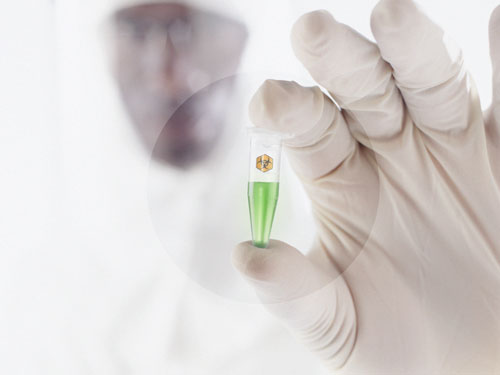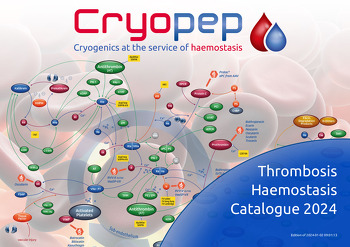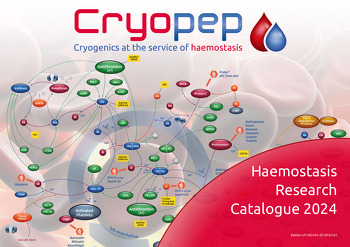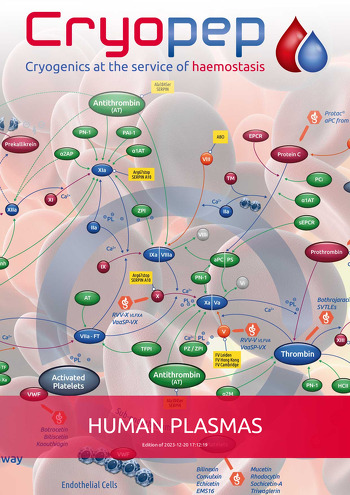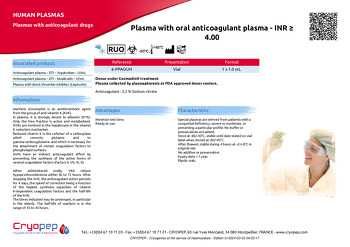Warfarin (Coumadin) is an antithrombotic agent from the group of anti-vitamin K (AVK).
In plasma, it is strongly bound to albumin (97%). Only the free fraction is active and metabolized. AVKs are involved in the hepatocyte in the vitamin K reduction mechanism.
Reduced vitamin K is the cofactor of a carboxylase which converts glutamic acid to gamma-carboxyglutamic acid which is necessary for the attachment of certain coagulation factors to phospholipid surfaces.
AVKs have an indirect anticoagulant effect by preventing the synthesis of the active forms of several coagulation factors (factors II, VII, IX, X).
When administered orally, VKA induce hypoprothrombinemia within 36 to 72 hours. After stopping the AVK, the anticoagulant action persists for 4 days, the speed of correction being a function of the hepatic synthesis capacities of vitamin K-dependent coagulation factors and the half-life of the AVK.
The times indicated may be prolonged, in particular in the elderly. The half-life of warfarin is in the range of 35 to 45 hours.
Special plasmas are derived from patients with a congenital deficiency, severe or moderate, or presenting a particular profile. No buffer or preservatives are added.
Store at -80/-40°C, stable until date stated on vial label when stored at -80/-40°C.
After thawed, stable during 4 hours at +2/+8°C in original vial.
No additive or preservative.
Expiry date > 1 year.
Plastic vials.
Minimize test time.
Ready to use.






